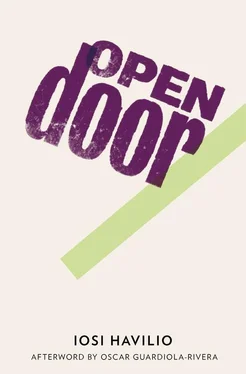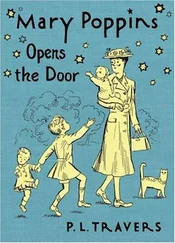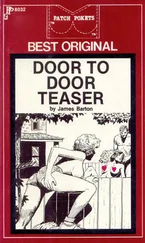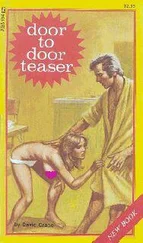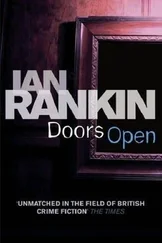The four of us sit down, Yasky, the two loonies and I, around a small white garden table.
‘I’m fine,’ says Julio, ‘I’m fine … how do you think I look? … when the telly’s not working I get a bit bored … just now it’s working … can we go for a drive in the car? I told Omar you’d lend us the car for a little drive … without leaving the grounds, just a little while, he understands everything, can we?’
Yasky doesn’t reply and Julio doesn’t complain. It’s as though they’ve had this conversation before. A code between brothers.
I tell Yasky that Jaime, my friend (I don’t know what to call him: boyfriend, lover, carer, country boy, could he be my country boy?) works in the hospital’s plant nursery. But Yasky doesn’t want to hear about anything to do with the hospital and immediately changes the subject.
‘It’s a mystery, it makes no sense, even with a strong current or at high tide, that stretch is narrow and not very deep, a body can’t disappear just like that.’
‘There are vipers,’ says Omar, the one who doesn’t speak, and we all fall silent.
After a while, Jaime appeared in the pick-up and beeped the horn, so I said my goodbyes quickly. Yasky stood up and didn’t know whether to hold out his hand or risk a kiss on the cheek. It turned out to be neither, something between the two, and he ended up having to manage a balancing act, almost falling.
‘Well, it was a pleasure,’ he said. And a second later, as I was walking away, he almost shouts:
‘I’m Bernardo.’
There is a small path leading from the stable, almost overgrown with bushes, skirting the mill, then getting lost behind a hillock. A tight, zigzagging path.
I start walking along it. It’s quite a nice afternoon, with an autumn sun coming and going, appearing and hiding at intervals. An unstable sun. Past the hillock, the path turns to the right and leads to a ring of trees, of medium height but quite dense. I’m not sure, but it strikes me that they could be the olive trees that Jaime mentioned once.
Now that I’m up close, what I thought was there isn’t there, the ring isn’t such a ring, and the trees aren’t that dense. From a distance, the colours of the countryside are hard to distinguish, they bind together. The sunshine doesn’t help. What had seemed to be a small oasis rising up from the middle of the plain turns out to be a cluster of old trunks, dry, pointed branches that devastate everything, a sort of giant crown of thorns for a super-Christ. I bend down and as I slip through to the far side of the fence I catch my neck. Ouch.
On this side of the fence there is an Australian-style water tank, a couple of metres tall, so completely abandoned that it can’t have been filled for several summers now. The metal sheeting was painted once upon a time, but I can’t tell whether it’s meant to be blue or green. I stand on my toes to peek over the edge, but I can’t, it’s higher than I thought.
I walk around it and come to some tiny aluminium steps attached to the side of the tank. The first thing I see is a layer of oddly coloured gelatinous filth, a nameless mixture of many browns verging on black. And although there is no particular odour, that non-colour floating at the bottom smells horrible.
But there’s more. Amongst the dry leaves, the fallen branches and the slimy algae, in that sub-world containing the worst of plant life, a kite is sticking out. The wreck of a kite, almost unrecognisable. It’s a deliberate image, a visual effect: a dead kite. A cliché. I don’t know why I feel so sad all of a sudden. Like I haven’t felt for a long time. So sad that I let myself slump to the ground, I close my eyes and I touch myself, I stroke myself, for consolation. And that’s how I spend the afternoon.
I make mistakes: I act too hastily, on impulse, like a child.
Jaime was going to the village to send a fax to the ministry to initiate his retirement process. I’ll go with you, I said, and that made him happy. I got into the truck and started the engine while Jaime finished getting some papers together. I turned on the radio and the only thing I could pick up properly was the exultant voice of an evangelical pastor talking in a strange mix of Spanish and Portuguese. Every two or three phrases, a euphoric crowd celebrated his sermon with hoarse cries that lengthened the o of glory into paroxysm. It could have been recorded or live, it could have been a joke or serious, it didn’t matter.
I was about to switch off the radio but I waited for a second to see Jaime’s reaction. But Jaime didn’t react, and I tired first. We went past the door of the shop, it looked closed. To tell the truth, it always looks closed. We passed a man wearing a military-green beret who was cycling in the opposite direction. Jaime sounded the horn unwillingly and it produced a toneless electric noise, like a death rattle. The man in the beret raised an arm in greeting and almost lost his balance. Jaime looked at me as though he wanted to tell me who it was, or for me to ask him: Who’s that? I didn’t give him the pleasure.
We stopped at the service station to fill up with diesel. Jaime greeted everyone again, as usual. I got out to buy some gum at the kiosk. Two guys wearing the company uniform, waiting on tiny benches for their turn to serve the next client, were giving me sidelong glances. They weren’t watching me: they were keeping me under surveillance. It was the best remedy for boredom in this circular village, which already knew everything about me and what it didn’t, it invented. Before we left, through some half-paranoid instinct, which sooner or later makes us utterly paranoid, I turned my head, just slightly, just for a second, just long enough to see how the third man, the one who had exchanged a few words with Jaime as he watched the numbers run up on the pump, approached the other two, adding his conspiratorial laugh, loaded with innuendo that secretly named me.
For the rest of the journey to the shopping centre, Jaime stayed silent. A silence that I almost filled with words that I chewed over in my head several times and then aborted without ever opening my mouth.
‘I don’t know how long I’ll be, I have to send the fax, then get that man, the what d’you call him, the administrator, to confirm that it arrived safely. Why don’t you take a walk?’
Jaime had stepped out of the pick-up and was speaking with his hand on the door. Since I don’t reply, not out of meanness but because I don’t know what I want, he gives me the keys so that I can feel free.
‘Here,’ he says, ‘if you go, lock up, I’ll be over here.’
In giving me the keys, Jaime behaves as a father would, and I’m like a teenage daughter. So, to follow to the letter the logic of this bad-tempered girl I’ve become, as soon as he can no longer see me, I get out of the pick-up and start strolling, as he suggested, but without his knowing.
It’s half twelve, the daylight is as hazy as it was a few hours ago and it’s going to stay like this until it gets dark. It’s the middle of autumn, any old day, forgettable. I leave the shopping centre behind me and wander along an unpaved street at right angles to the main avenue, with my back to the school building. Most of the trees are already bare and the privet hedges forming the boundaries between houses are quite stunted. I’m distracted by noises that come from close by or far away, some continuous and subtle, like the humming of an insect that doesn’t let itself be seen, others more violent, appearing suddenly and cutting out just as abruptly. I’m never going to get used to country noises. There aren’t many of them, and yet they are so precise. They always reveal something. And hide the rest.
Читать дальше
